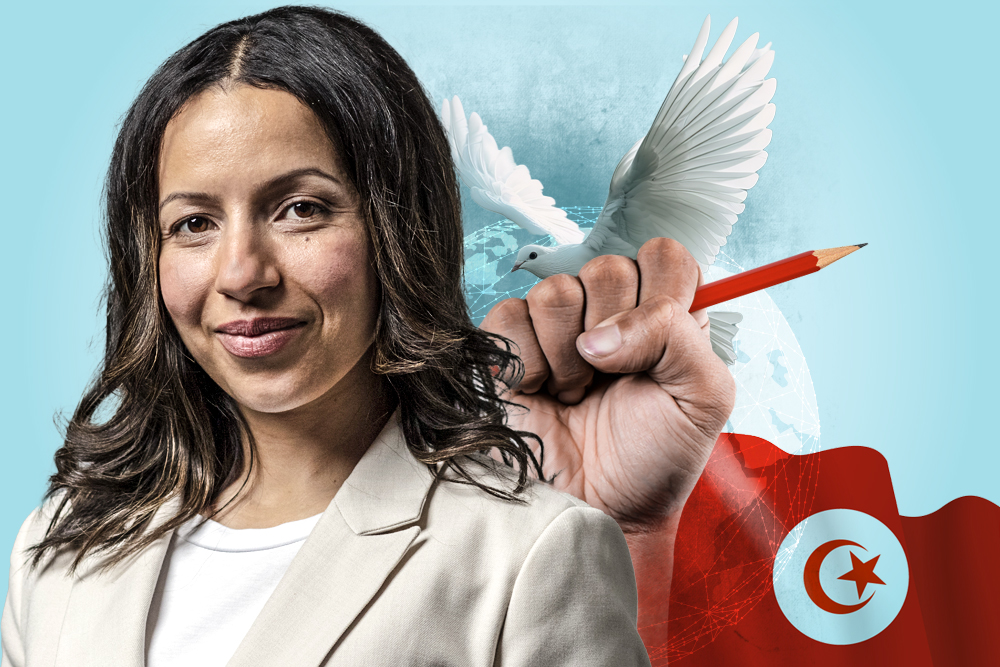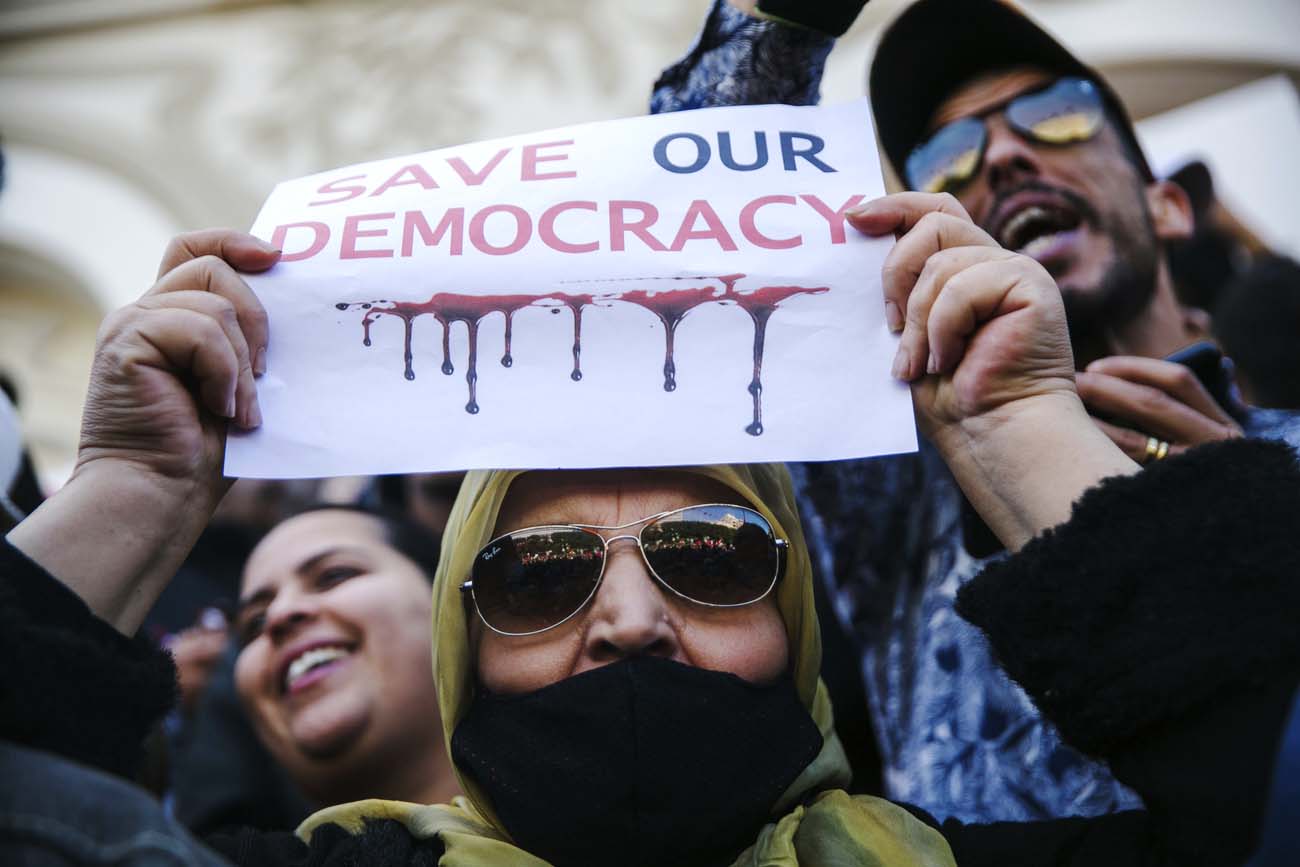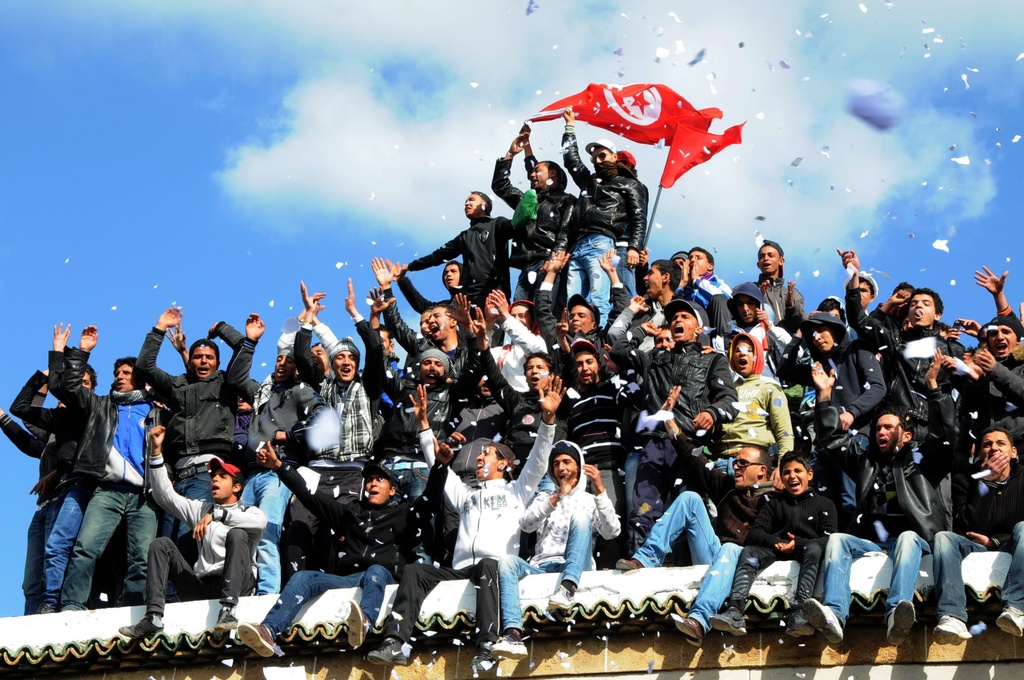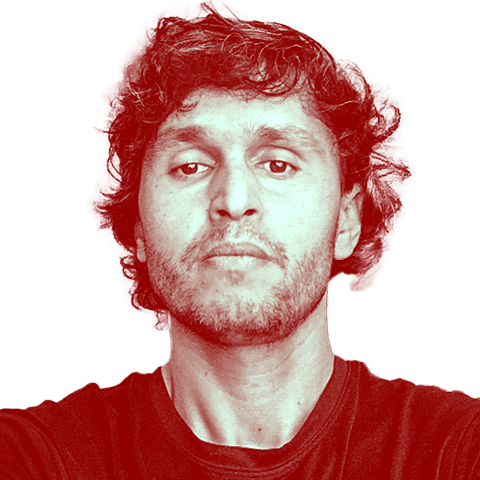
Tunisia holds presidential elections under one-man rule… again
As Tunisia gears up for October’s presidential elections, the country faces a critical test of the people's sovereignty. The North African nation may try to imitate aspects of the Swiss system but there is a clear tendency towards rising authoritarianism.
The upcoming October 6 election is the first to be held under the grassroots system, a project championed by President Kais Saied and his supporters. Saied claims that this system is designed to restore the people’s will and sovereignty, drawing on concepts and experiences from other countries, notably direct democracy as practiced in Switzerland.
However, since Saied seized full powers on July 25, 2021, his actions have raised both theoretical and practical questions about whether his leadership truly reflects the people’s will and whether the elections align with the aspirations and desires of the Tunisian public.

More
Amal Mekki: my battle against the Tunisian authorities and the cost of truth
Direct democracy in the grassroots system
One of the central concepts promoted by Saied’s grassroots project is direct democracy. The origins of this system trace back to “think tanks” that emerged in the years following Tunisia’s Jasmine Revolution, which toppled President Zine El Abidine Ben Ali on January 14, 2011. These groups comprised activists from various ideological backgrounds, primarily leftists, who considered Saied, a law professor, as an ideal figurehead for their cause.
The theoretical foundation of the project, however, remains incomplete. It lacks a comprehensive body of work outlining its principles and mechanics, with most of its theoretical underpinnings found in scattered articles and media appearances by key activists.
Since 2021, the true nature of the grassroots project has become clearer, both in theory and in practice.
Direct democracy is one of the concepts that Saied’s supporters invoke, alongside critical perspectives on representative and participatory democracy. The project’s proponents argue that a new political system can be created by drawing on these various experiences and correcting the flaws of existing governance structures, all in the name of genuine representation of the people’s will and sovereignty.
At its core, the grassroots project aims to “escalate” power from the bottom up, requiring the adoption of appropriate legislative frameworks and establishing institutions that span from the local to the national level.
As a result, the project calls for eliminating all traditional intermediaries, such as political parties, unions, and professional organizations.

More
How local female politicians are keeping Tunisian democracy alive
This reinterpretation of direct democracy and its mechanisms is evident, for example, in the way council governance is framed. The councils envisioned by Saied’s project (as outlined before he came to power) differ significantly from Switzerland’s council-based system, which operates within a federal state. In Switzerland, cantons enjoy legal and political autonomy, while Saied’s councils are more limited in scope, operating within a unitary state.
The number of council members, from local to national levels, stands at 2,814. Their primary responsibility is to develop and escalate development projects to the national council.
One practical example of how direct democracy has been redefined is the 2022 online consultation launched by Saied. Presented as a referendum on key political, economic, and social issues, the consultation aimed to solicit the public’s input. However turnout was low and the process divided public opinion.
First presidential election under the grassroots system
Tunisia has been preparing for the presidential election for months, overseen by the Independent High Authority for Elections. This period has been marked by widespread controversy, largely due to the systematic exclusion of political opponents.
This has ranged from security crackdowns on election campaigns to legal cases against candidates, rendering them ineligible to run, and, most notably, the electoral authority’s refusal to enforce a court ruling that reinstated certain candidates in the race.
This exclusion fits within the broader trajectory of Saied’s political project. Since the start of the July 25 process, there has been a clear push to marginalise unions, professional organisations, and civil society actors, particularly those critical of the regime. Accusations of treason and corruption have been leveled at civil society groups, and supporters of Saied’s project have gone as far as to declare the end of civil society’s role altogether.
Saied’s political approach is heavily centered around formal structures. Referenda or public consultations have been used to legitimise decisions made at the highest level by Saied himself.
Low participation rates and their results meant they had little to no impact on the political arena, which remains dominated by official state policy. The political landscape has become increasingly monolithic without alternative institutions or the ability to craft opposition policies.
Tunisia may have embarked on a democratic transition that inspired the Arab Spring in 2011, but it has never had the opportunity to solidify that democracy.
The current political project does not appear capable—either in theory or in practice—of achieving that goal. As for the elections, they seem to be little more than an attempt to legitimise a project controlled by a single entity, the presidency, determined to maintain its hold on power.

More
Swiss in Tunisia hopeful for the future
A shifting vision of power
Reviewing the 2022 Constitution shows that two direct democracy mechanisms—recall elections and referenda—have been adopted. However, other instruments are absent, like the popular initiative (which allows citizens to propose or repeal legislation after collecting 100,000 signatures, as in the Swiss system).
This suggests that Saied’s project has shifted from a utopian vision of the people to a more centralised, populist approach to governance, with a reengineering of institutions and their roles.
While direct democracy is meant to empower individuals to play an independent political role, Tunisia’s constitution has adopted difficult procedures, emphasising representative structures controlled by the political system.
This centralises power in the hands of the executive authorities, who enjoy more expansive powers than other actors.
Looking ahead, the question of direct democracy remains central to reclaiming the people’s will and sovereignty in Tunisia. Yet, practice has strayed from this ideal in recent years. The only positive outcome, perhaps, is that the accumulation of errors may provide lessons on what must be avoided to achieve genuine political, economic, and social progress.
In this, the president’s project aims to shape history in pursuit of a “true” democracy, but writing history requires a historical accumulation similar to the Swiss system’s experience, which has been building its distinctive form of democracy since 1848.
The views expressed in this article are solely those of the author and do not necessarily reflect the views of SWI swissinfo.ch.
Edited by Mark Livingston/ds

In compliance with the JTI standards
More: SWI swissinfo.ch certified by the Journalism Trust Initiative




























You can find an overview of ongoing debates with our journalists here . Please join us!
If you want to start a conversation about a topic raised in this article or want to report factual errors, email us at english@swissinfo.ch.